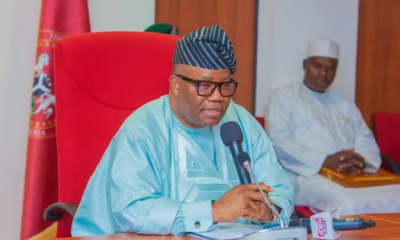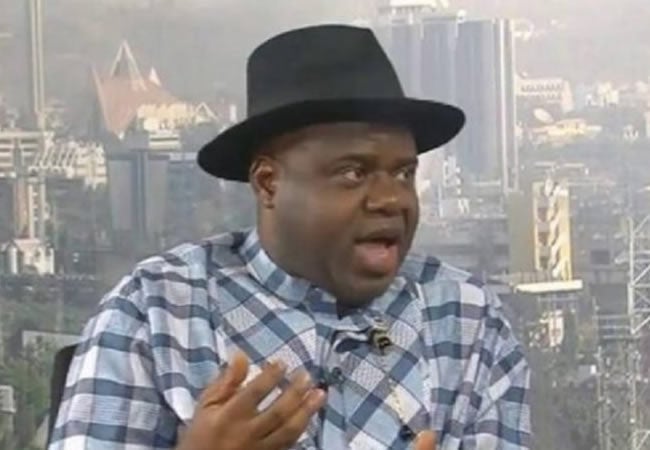The Bayelsa Government has assured the academic and non-teaching staff of primary schools in the state of its commitment toward putting modalities in place to ensure prompt payment of their monthly salaries.
Deputy Gov. Lawrence Ewhrudjakpo gave the assurance on Thursday while responding to issues raised by the state council of the Non-Academic Staff Union (NASU) of primary schools during a meeting at his office in Government House, Yenagoa.
The National Daily reports that Ewhrudjakpo said that the state government was not responsible for the challenges facing primary schools.
He, however, said it would engage the local government councils to address the issue of delayed payment of monthly salaries.
He pointed out that the present administration placed high premium on workers’ welfare, and therefore, would take steps to ensure primary school staff members received salaries at the same time with their state counterparts.
While appealing to the leadership of NASU to be a little bit patient with government, the deputy governor, however, urged them to jettison the idea of embarking on a strike action over the issue.
He faulted the ultimatum issued to the Bayelsa Government by the State Universal Basic Education Board (SUBEB) branch of NASU, noting that it was not the responsibility of a branch of any union to issue such.
According to Ewhrudjakpo, true practice of industrial relations requires that an ultimatum can be given only when collective bargaining has failed.
He said in the instant case, collective bargaining had not broken down.
He said that even where it failed, “the rules of engagement require the state leadership of the union to give 21days’ notice, followed by 14 days, and finally 7 days’ notice before a warning strike.”
The deputy governor cautioned NASU to be properly guided and should not take the labour-friendly disposition of the Sen. Douye Diri-led prosperity administration for granted.
Speaking further, he said government had concluded the exercise on proper placement of their grade levels and steps, adding that the memo was already submitted to the Governor for approval and commencement of implementation.
“Something has to be done about the delay in the payment of primary school teachers’ salaries.
“We will have meeting with the council chairmen on this issue and work out the modalities to ensure they get salaries when others are getting theirs every month.
“But let me make it clear to you that it is wrong for a single branch of NASU to issue ultimatum to the State Government that its members want to embark on strike.
“It is your state branch that ought to give such ultimatum or notice.
“Even that can be done only when collective bargaining has broken down. I don’t think collective bargaining has broken down as far as the issues you have raised are concerned.
“Again, you should take note that primary school salary is the basic responsibility of the local government councils.
“The State Government is only intervening to make sure that the system does not collapse.
“Knowing the position of government on the issues, it is actually too hasty to give an ultimatum to government without exhausting all the options open for dialogue.
“Besides, we have already sent a memo to the Governor and once it is approved, all issues raised here would have been addressed,” he added.
In their separate presentations, the state Chairman of NASU, Comrade Otame Alfred, and its SUBEB branch Chairman, Comrade Sowei Apprebo, said the union was compelled to write to the State Government.
Both officials said that the correspondence was to complain about the reversal of their promotions shortly after implementation in April this year.
The union leaders, who expressed satisfaction with the deputy governor’s handling of the issues, however, pleaded with government to ensure seamless implementation of their members’ promotion benefits in the interest of industrial harmony.

 Latest2 days ago
Latest2 days ago
 Crime3 days ago
Crime3 days ago
 Editorial7 days ago
Editorial7 days ago
 Agribusiness5 days ago
Agribusiness5 days ago
 Business6 days ago
Business6 days ago
 Agribusiness3 days ago
Agribusiness3 days ago
 Business3 days ago
Business3 days ago
 Featured6 days ago
Featured6 days ago

